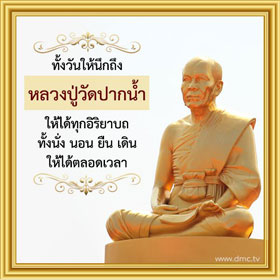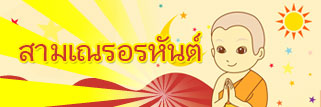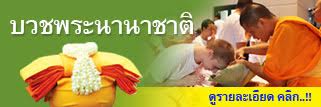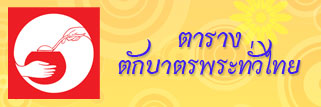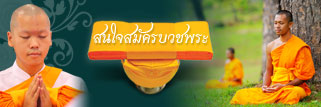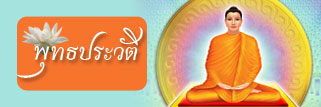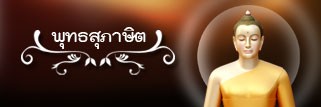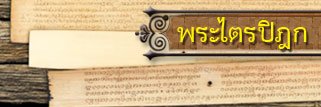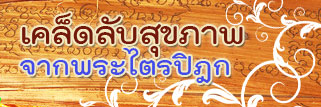Blessing Nine:
Artfulness in Usage
C. DISCIPLINE: PRACTICAL CONSIDERATIONS
C.1 Components of Five Precepts
In the keeping of Five Precepts, householders often feel guilty when they mistakenly do unwholesome things — they don’t know whether it means they have broken their Precepts. Some people accidentally run over a stray dog while they are driving because they happen to be in a hurry and wonder whether it breaks the Precepts. Some women know that they have never taken the possession of others without asking (i.e. they have never stolen) but they wonder if taking money from their husband without asking is breaking the Precepts. The Components of Five Precepts explained below are an attempt to answer this genre of questions. Below you will find descriptions of the factors involved in breaking each of the Precepts. All factors must be present in order for the Precept to be broken:
C.1.1 First Precept: Not Killing
In order to break the Precept of not killing, your action has to consist of five components:
1. The victim must really be alive: Suppose there is a certain dog we have hated for a long time. Every time we see it, it has barked us, chased us and bitten us. We think that the dog is alive, but in fact it has already died. Someone else had just shot the dog dead that very morning. It is lying dead in the road, but we were not to know that. Seeing it lying in the road we think to ourselves, “This time we can get our own back on the dog,” and we reverse the car over the dog. In this case we have not managed to break the Precepts because it had already died long ago of other causes.
2. We are aware that the victim is alive: Sometimes we misunderstand that an animal is already dead, so you think that a cremation is in order. You throw the body of the animal into the flames — but it is not really dead. However we were not to know that. This time the animal does really die! Again, such an action does not break the Precepts.
3. We have the intention to kill the victim: Supposing you run over an animal killing it accidentally, because there is no intention to kill (you could not avoid it), again the Precepts are not broken.
4. We put in the effort to kill the victim: You have to put in the effort to kill, if you are to break the Precepts. You have to really aim the gun and pull the trigger if you are to create the necessary conditions to break the Precepts.
5. The victim dies in the way intended: As the result of our efforts, the animal must really die if the Precepts are to be broken. If you shoot to kill, but the result is only to break an arm or leg, the Precepts are not yet broken.
C.1.2 Second Precept: Not Stealing
In order to break the Precept of not stealing, your action has to consist of five components:
1. There is an owner who is possessive about that object:
If you are in the forest where there are objects of which no-one is the clear owner it is all right to take them.
2. The perpetrator knows the object has someone possessive of it: People can even be possessive of a favourite rag. If for some reason you cannot find the rag you usually use, often you feel irritated or angry. In the past there was an agreement between market gardeners as follows — whatever they plant, whether it may be bananas or sugar cane or aubergines or chillis, if anyone walks through the field and feels they want to eat some of the crop, they are allowed to help themselves to as much as they can eat, but it is prohibited to take any in your pockets or in a bag to eat in the home. It is said that there is only one eater of stolen food who steals food and takes it home to eat and that is a stray dog.
3. The perpetrator has the intention to steal: Even the intention to steal starts to cloud the mind.
4. The perpetrator makes the effort to steal the object: This means trying to find devious strategies and actually putting those strategies into practice.
5. The perpetrator obtains the object in keeping with his intention.
C.1.3 Third Precept: Not Committing Adultery
In order to break the Precept of not committing adultery, your action has to consist of four components:
1. The object of the affection must be a man or woman who is prohibited: So what do we mean by a partner who is prohibited? There are four sorts of women who are prohibited to men
• married women;
• women who are still in the care of their parents;
• women who lifestyle prohibits sexual intercourse such as nuns or female prisoners
• women related to us such as our mother or our sister or our daughter
and three types of men prohibited to women:
• any man who is not your own husband;
• men whose lifestyle prohibits sexual intercourse such as monks.
• men who are related to us
2. The perpetrator has the intention to have sexual intercourse with that person;
3. The perpetrator makes the effort to have sexual intercourse (e.g. removes his clothes)
4. There is a joining of the sexual organs. In fact there is no man or women born in the world who has no connections except for the one who is already married to you. No-one else is the legitimate subject for sexual intercourse — not in the bar nor the night club — even prostitutes are prohibited (consider respect for human dignity and fair economics and you will understand why) — there are no such things as ‘wayside flowers’ free to be picked by anyone.
C.1.4 Fourth Precept: Not Telling Lies
In order to break the Precept of not telling lies, your speech has to consist of four components:
1. Saying something that is not true
2. Having the intention to misrepresent the truth
3. Making the effort to misrepresent the truth.
4. The listener understands what you have said.
The damage of lying comes from the chain reaction it causes: in order to lie to someone once, you have to lie to yourself first three times. The first time you lie to yourself is in order to prepare yourself to tell a lie. You have to make up the story and convince yourself first. The second time you have to lie to yourself is when you meet the person who you are going to lie to. Thirdly, you have to remember what lies you have told to whom because next time you meet them you have to tell them things consistent with that first lie, or else your dishonesty will be discovered. If the lie is an important one, sometimes you will have to remember it for years. The result of being a liar is that eventually you will lose your self-confidence because you have lied to yourself until you have become used to it. At the end of your life, your memory becomes so blurred to the truth that you end up suffering from senile dementure as the result of the mental hypocrisy you have accumulated throughout the course of your life.
C.1.5 Fifth Precept: Not Drinking Alcohol
In order to break the Precept of not drinking alcohol, your action has to consist of five components:
1. The liquid drunk must be alcohol
2. The person must know that it is alcohol.
3. The person must have the intention to drink it
4. The person must make the effort to drink it
5. The alcohol must be swallowed.
For the purposes of the fifth Precept, not only alcohol and heedlessness-inducing intoxicants are prohibited, but also such drugs such as heroine, opium, maruana etc.. If you consider tobacco from the point of view of this Precept in an objective way, you will find that smoking tobacco must be avoided too. Those who become addicted to anything like tobacco will find themselves in difficulty when they come to practice meditation on a retreat where there is no opportunity to smoke. Some people say that they smoke without being addicted — and they have been smoking without addiction continuously for the last ten years!
C.1.6 Seriousness of Breaking Precepts
In addition, breaking a Precept may be more or less serious dependent on an additional three factors:
1. the amount of effort invested in breaking the Precept: the more the effort invested in a deed, the more serious is the breaking of that Precept. To kill a large animal is more serious than to kill a small animal because it takes more effort.
2. the gratitude or ingratitude in breaking the Precept: the more an action expresses ingratitude, the greater will be the seriousness of breaking the Precept. Wringing the neck of the cock which crowed to wake you up every morning at dawn to go to school until you got yourself a university degree is worse than wringing the neck of another cock you have never known before. Thus one should be very careful not to disregard the debt of gratitude owed to others. If that person or animal is one that is useful — especially if it has been helpful to us personally in the past.
3. The strength of the intention behind breaking the Precept: if you kill an ant by pulling each leg out one by one and then killing it, it is worse than killing the ant outright in one fell swoop. To kill a mosquito by slapping it is not as bad as putting a candle flame to the wings of the mosquito and leaving it in pain to wriggle to death for the next three days. If a person kills with vengeance and cruelty, it is more serious than for killing out of vengeance in cold blood. If someone kills someone with a single shot, it is not so bad as someone who tortures someone to death. Thus even in the past, they would try to find quick ways of execution so that they could reduce the evil accrued by the executioner. (Best of all is not to have to kill the prisoner at all).
C.2 Components of Eight Precepts
C.2.1 Differences between Five and Eight Precepts
The following differences are found between the components of Precepts shared between the Five and Eight Precepts:
The Third Precept: Unchastity: The first difference between the Five Precepts and the Eight Precepts concerns the Third Precept. Immoral sexual relations [kAmesu micchAchAra] are replaced by abstention from any sexual relations (brahmacariyA — lit. Brahma-faring). For the Third Precept of the Eight Precepts there are only two components:
1. You have the intention of having sexual relations.
2. There is a joining of the sexual organs.
In this case it makes no difference whether your partner is your husband or wife. It will cause your Precepts to be broken. If either or both husband and wife are training themselves in the Eight Precepts it is usual for them to sleep apart. This form of training is important because for most people in the world who lack control over their own minds, for most of the time, their thoughts and action are dictated by the defilements of sensual indulgence. The five precepts already teach you to be contented with your spouse. The Eight Precepts goes further with this training by offering sixth, seventh and eighth Precepts to help play a supporting role in the reduction of attachment to sensual stimuli.
The Fifth Precept: Not Drinking Alcohol: Another difference between Five Precepts and Eight Precepts concerns the fifth Precept. For Five Precepts the fifth Precept has five components, but for the Eight Precepts, there are only four components as follows:
1. The liquid drunk must be alcohol
2. The person must have the intention to drink it
3. The person must make the effort to drink it
4. The alcohol must be swallowed.
You will see that for the Eight Precepts it is no longer necessary to know that the drink is alcohol in order to cause the fifth Precept to be broken.
C.2.2 Sixth Precept: Refraining from Untimely Eating
It is commonly asked by housewives who keep the Eight Precepts whether they are allowed to taste the food they are preparing for their husbands in the evening. Sometimes to taste and to eat food are not the same (except for the person who tastes half a plate of food and still doesn’t know the flavour!)
1. It must be midday of one day to the dawn of the next:
The dawn signals the changing of the day for Buddhists — technically the earliest time that if you go out into the open, and stretch out your arm, you can see the lines on your hand clearly without having to use a torch or the time at dawn when you can first distinguish the leaves of trees as being of different shades of green.
2. The substance eaten is solid food (chewable): This second component has some exceptions i.e. chewable food that is allowed. Exceptions include refined sugar, sugar cane juice, tamarinds, embolic myrobalan, nutgall or pickled ginger. For those who might have dietary problems if their stomach is completely empty, cheese or butter is allowed (but not cheese sandwiches!)
3. The effort is made to eat the food
4. The food is swallowed.
If all four of these components are present then the sixth Precept will be broken. The point of keeping the sixth precept is to remove another possible risk of sleepiness as a hindrance to one’s meditation practice by avoiding a heavy evening meal. If we eat too much, it will give us more energy than we can use and this contributes to ease of sexual arousal. If you were to miss a meal once a week by forgoing an evening meal, you will find that the excess food will be burned up.
C.2.3 Seventh Precept: Not indulging in entertainment or immodesty
Indulging in entertainment means specifically: singing, dancing or playing musical instruments yourself, watching others doing the same (excepting the national anthem or music in honour of the monarch). Immodesty means wearing perfume, jewelry, flowers or makeup (except talcum powder for medicinal purposes). Some people ask if they can watch the television when keeping the eight precepts — the answer is that you have to be selective about what you watch. You can watch news but don’t go watching a cabaret or certain sorts of advertising. You have to avoid contact with cosmetics that are meant for beautification instead of for health. You shouldn’t wear perfume, make-up, flowers, hair dye. Wearing talcum powder should just be to prevent athlete’s foot or abrasion — not for beautification. The components of this seventh precept are any of the following:
1. Playing musical instruments, dancing or singing romantic songs yourself.
2. Watching entertainment consisting of singing, dancing or romantic music.
or all of the following:
1. There are cosmetics or perfume
2. The reason is not because of poor health
3. You wear the cosmetics or perfume
C.2.4 Eighth Precept: Not engaging in Indolent Sleeping Habits
The following are the components of the eighth precept:
1. The sleeping place is large or high
2. You know that the sleeping place is large or high
3. Sitting or lying down on that place
You will notice that not only lying on a soft mattress is forbidden but also sitting on such a mattress, because they contribute to making the mind wander. The softer the mattress on which you sleep, the less you feel like getting up in the morning. As you sleep without mindfulness, it will start to undermine the purity of your third precept. However, nowadays houses commonly have sofas which are soft. If you were to be strict, sitting on a sofa would be forbidden, but for the sake of manners, it is better to accept others hospitality than to take all the cushions off the sofa and throw them away. At the same time we should take good care of our presence of mind. We have to think of both our Precepts and the appropriateness in any situation. Sometimes hotels have nowhere but beds upon which to sleep. In other places it may be too cold to sleep on the floor without anything under you in the way of insulation. Thus consider appropriateness in each situation.
C.3 Monastic Discipline
C.3.1 The Objectives behind Monastic Discipline (Vin.iii.20, A.v.70)
The Buddha created the monastic discipline for ten reasons:
1. To maintain peace in the monastic community;
2. To restrain stubborn and shameless disciples;
3. To maintain the happiness of the monastic community;
4. To maintain the happiness of monks who love discipline;
5. To give protection from defilements that might increase in the present time (for example if monks are allowed to speak one-to-one with females, there may be many new problems resulting);
6. To give protection from defilements that might increase in the future (for example if monks are allowed to speak one-to-one with females, later it may lead the monk to spend all their time thinking of that female.);
7. To instil faith in the public who are not yet faithful;
8. To increase the faith of the public who are already faithful;
9. To maintain the Teaching of the Buddha steadfast;
10. To maintain discipline itself;
C.3.2 Components of Monastic Discipline
Although it would be possible to give the components for each of the 227 monastic Precepts (same principles apply as for those of the Five and Eight Precepts) there is insufficient space to do so. However, to demonstrate that monastic discipline is more than just the code of conduct, the four components of monastic practice are described below:
C.3.2.1 Restraint according to monastic code of conduct [pᾱṭimokkhasaṃvara]: The ‘pᾱṭimokkha’ is the set of rules of training which the Buddha gave to monks for the restraint of their bodily actions and speech. As soon a monk ordains, whether he knew the rules or not previously, it is immediately his duty to make sure he knows and abides by the 227 rules of conduct. The 227 Rules therein can be divided into three degrees of seriousness:
1. Rules entailing defeat [pᾱrᾱjika]: There are four rules in this category: killing people, stealing, sexual intercourse and claims of mental attainments. Any monk who infringes the rules of this category immediately in no longer a monk any more. Whether he is disrobed or not, he is no longer a monk any more. It is the heaviest infringement of monastic conduct possible.
2. Rules entailing an initial and subsequent meeting of the order [saṅghᾱdisesa]: This category of rules of training is less serious than the previous, but can still be considered evil and coarse. When a monk breaks one of these rules, they must confess their transgression to the rest of the monastic community. If a monk who has infringed such a rule still has not admitted his fault to the rest of the monastic community, then he is still not returned to purity. The reason for this is to show that you are aware of your fault and will not do it again. Only then can the monk be re-admitted to the monastic community.
3. Rules entailing confession: These include “Rules entailing confession” [pᾱcittiya], “Rules entailing forfeiture and confession “[nissaggiya- pᾱcittiya]; “Rules entailing acknowledgment” [pᾱṭidesanīya]; “Minor Transgressions” [dukkaṭa], and;”Wrong Speech” [dubbhᾱsita]. For these infringements of the monastic conduct there is no need for monks to confess in front of the monastic assembly. By confessing to another monk the offending monk can be returned to purity again. In fact, confession doesn’t wash away the evil caused by infringement of the discipline, but it helps to give the monk the mindfulness not to infringe the same rule of conduct again. Confession is like the healing of an open wound — but the scar still remains. Best of all is never to break the rules of monastic conduct.
C.3.2.2 Restraint of the senses [indriyasaṃvara]
This means specifically the restraint of the eyes, ears, nose, tongue, skin contact and mind. Monks should not look at inappropriate things: if a monk sees a couple petting at the side of the road, he shouldn’t stay and watch them but should quickly go somewhere else. Monks should not listen to inappropriate things — there is no need to go listening to gossip that doesn’t concern him. Monks should not smell things that are inappropriate or taste things that are inappropriate: mostly this concerns food and not just eating things for the taste. Monks should not touch or have skin contact with things that are inappropriate: not using rubbing creams just for the smoothness of the skin or to take pleasure in touching soft and comfortable things. Monks should not use their mind to think of inappropriate things. In other words monks should not find pleasure or displeasure from the use of the senses.
C.3.2.3 Purity of livelihood [ᾱjīvaparisuddhi]
Monks have to make their living, but not by cultivating fields or earning a wage. The proper way of making a living for a monk is to go on almsround. All monks know this but some think that almsround is inconvenient because sometimes alms are donated, sometimes not. To set oneself up as a fortune teller or a seller of lottery tickets somehow seems more convenient! — but it is not pure livelihood for monks. Lotteries are a form of gambling and gambling is one of the roads to ruin. Thus if monks encourage and make their living out of lotteries or lottery numbers, don’t go supporting them — they are in breach of monastic discipline. Fortune telling by monks is no better than lottery tips. Fortune telling is a pseudo-science of statistics and is not grounded on truth. Thus fortune telling is a sort of guesswork which is not much better than lying.
C.3.2.4 Reflection on the Requisites [paccaya-paccavekkhaṇa]:
This is the practice by monks of recollection or reflection on the four different sorts of requisites before use. The requisites of clothing, food, shelter and medicine are the basic needs of life. Monks must reflect that the requisites are nothing more than needs to keep the body going, in the same way as fuel keeps a car mobile. Most people use the requisites of life without distinguishing between need and want — but for monks the proper practice is to use the requisites to train oneself in the consideration of moderation.

http://goo.gl/kJO9r








 พิมพ์บทความนี้
พิมพ์บทความนี้
